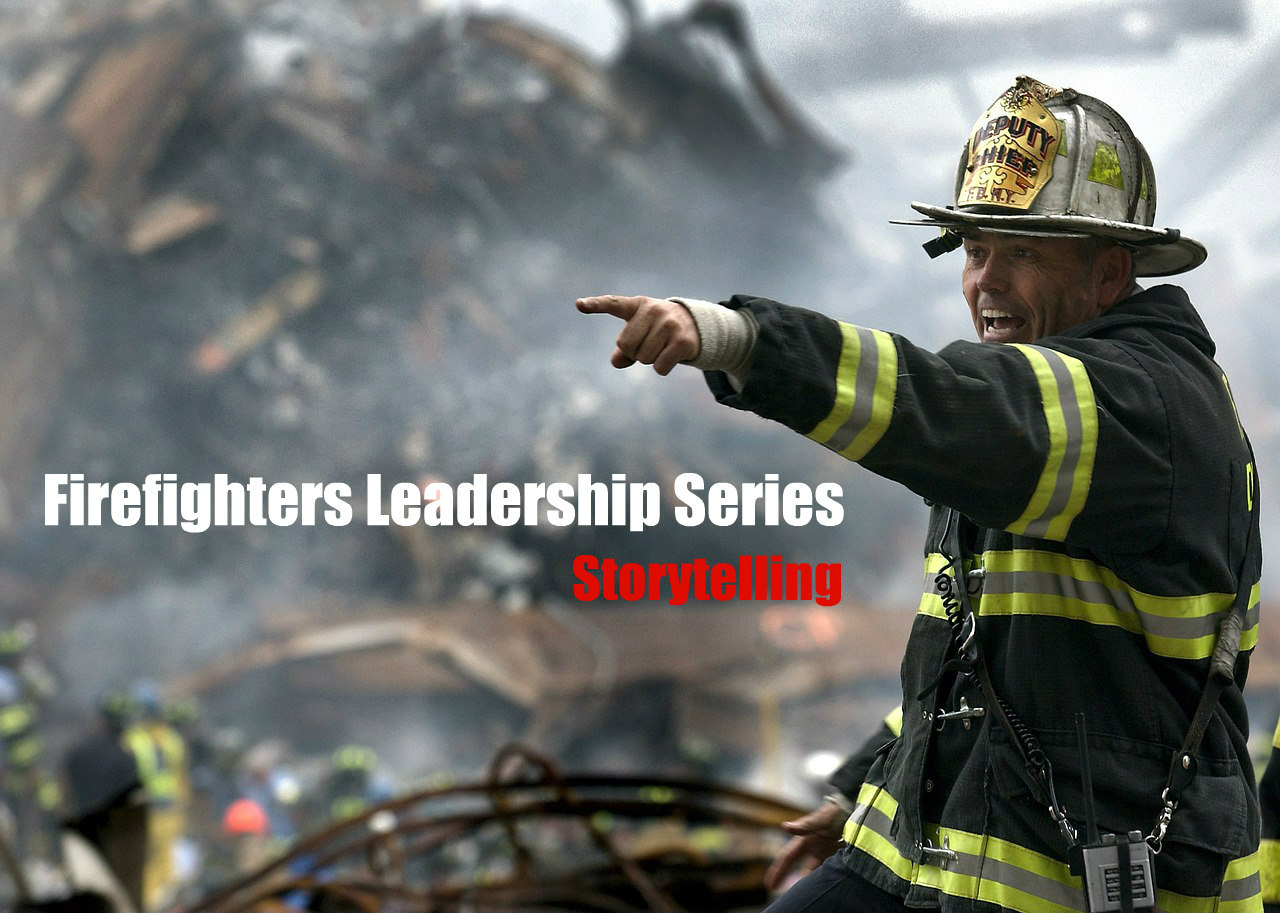Lead and Coach Your Team to Successful Outcomes Through Storytelling
A traveler came upon three men working. He asked the first man what he was doing, and the man said he was laying bricks. The second man answered the same question, and he said he was putting up a wall. When the traveler got to the third man and asked him what he was doing, he said he was building a cathedral. They were all doing the same thing.
However, the first man had a job.
The second man had a career.
The third man had a calling.
I would wager a guess that you and I could spend some time talking about that story and how it relates to our lives. Whom do we want to be? How do we approach our tasks at work? The effect of the story is engaging.
It’s All Critical, so Nothing is Critical
As a leader in the Fire Department, you have lifesaving techniques and sequences that you must ensure that every firefighter knows and follows. But not unlike our childhood training, if there are too many critical rules to follow, nothing stands out as significant.
That is unless you find a way to help the team member relate it to themselves. Stories have power. They bring meaning to life.
Perhaps you remember your best teachers in school. Most likely, they used unconventional methods to help you not only hear what is important but want to listen to it.
Physical Effects Of Storytelling
The effects of stories start in our heads – when we hear a story, our brains release two vital chemicals: cortisone and oxytocin.
Cortisone is responsible for increased focus and attention, and oxytocin is known as the ‘trust’ hormone. Oxytocin allows us to feel and experience empathy and emotion. Most people make decisions based on emotion, not on logic, so it is crucial to trigger the release of oxytocin. We can accomplish that when we tell stories.
Stories are Co-Creations
Stories are memorable because as someone tells their story, we simultaneously co-create our own story in our heads. We see the characters, hear the words and voice inflections, and imagine the foggy night air. When the novel becomes ours, we find personal meaning.
What kind of leader do you respect? The individual who barks out imperatives or the person who knows how to engage your interest enough that you bark that imperative to yourself?
Tips for Foolproof Storytelling Strategies
Find Your Story
Your first step is obviously to find a great story that will help you make your point.
You could tell your team about the moment you first learned what you are teaching. Perhaps, rehearse the consequences of when you saw your point demonstrated, either successfully or unsuccessfully. You could tell about how this message worked with one of your other teams.
Your most compelling story will typically revolve around the “why” message. Why you do it? Why others did it. Human beings long for meaning to give them a reason to buy into it.
How to Craft Your Story
Try telling your story as though this is the “norm.” Share how the norm, or what we don’t want, can be transformed by doing what you suggest. Show them the new “optimal norm” that manifests through your suggested technique or behavior. Our stories are not meant to follow the “novel” concept, instead, as anecdotes that help illustrate why others should follow.
Set the scene. Help your team see and hear and feel the people and places you describe. Be vivid. Be sure to include emotional words and help the listener feel the intensity. While you speak, your story will remind the team member of instances they relate to in their own life.
Be specific, give detail, show them how it works or sounds or unfolds. Of course, everyone may embellish a story here and there – it’s in the history of the great storyteller. However, truth is critical for trust. Make sure your integrity empowers your narration.
Connect the Dots
One responsibility of a great leader is to help others connect a sense of purpose to what they do. We want our teams to see the bigger picture and to imagine their impact on the outcome. We want people to feel valued and purposeful in their world.
Ensure that your storytelling is not liberty you take for your ego. Your stories are to help others see the value of their role in the department and or project. Empower them, through the storytelling, to see themselves succeeding and how that, in turn, benefits the community where they work and live.
“The companies that survive longest are the ones that work out what they uniquely can give to the world – not just growth or money but their excellence, their respect for others, or their ability to make people happy. Some call those things a soul.” Charles Handy






